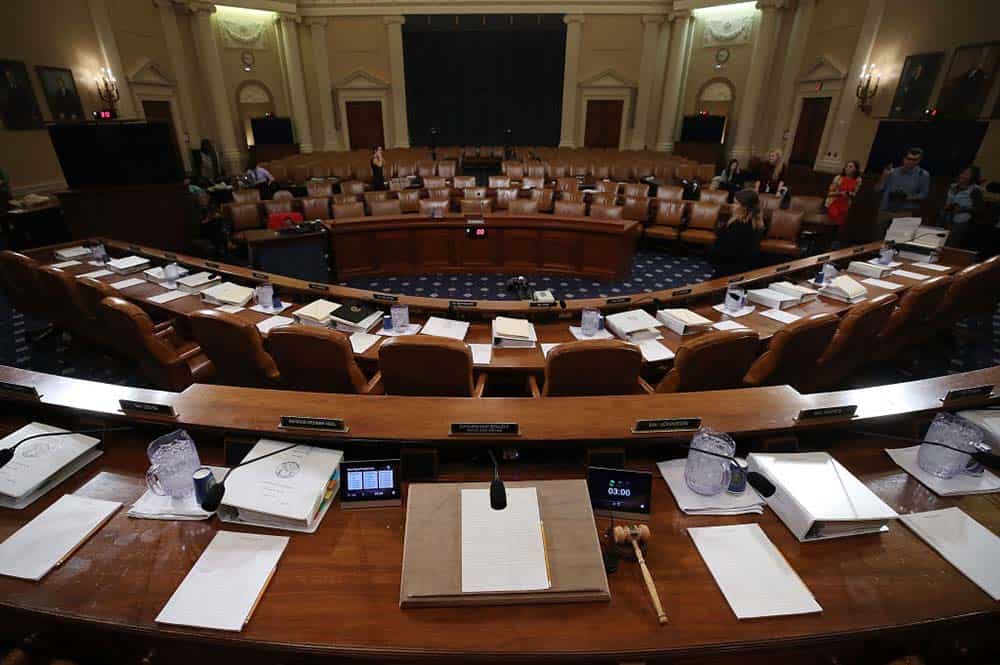As we race past $34 trillion in debt, America is facing a growing fiscal challenge. Unfortunately, instead of focusing on the key structural drivers of our debt, lawmakers remain bogged down in short-term budget battles. The good news is that there is growing momentum for a formal effort to look at the big fiscal picture. Lawmakers from both sides of the aisle in both the House and Senate have proposed legislation that would form a bipartisan fiscal commission to recommend spending and revenue solutions to put the United States on a better path and build a strong economic foundation for the country.
Commission Efforts in the House and Senate
In the U.S. House of Representatives, the Fiscal Commission Act of 2023 was introduced on September 28, 2023. That legislation would create a bipartisan, bicameral commission on fiscal reform and responsibility. The commission would identify policies to improve the medium- and long-term fiscal outlook, to make Federal trust funds solvent for at least 75 years, and to stabilize the debt-to-GDP ratio at the “earliest reasonable date” (at a minimum within 10 years). The bill was introduced by Rep. Bill Huizenga (R) and has 22 bipartisan cosponsors as of January 8, 2023.
On November 8, the Fiscal Stability Act of 2023 was introduced in the Senate. The bill is not identical to the House legislation, but is very similar in its goals and framework. The Senate bill would establish a commission on fiscal stability and reform with a three-fold focus:
- To improve the long-term fiscal outlook of the federal government
- To improve the solvency of the largest trust funds (for at least 75 years), and
- To achieve a debt-to-GDP ratio below 100 percent by 2039.
The bill was introduced by Sen. Joe Manchin III (D) and has nine bipartisan cosponsors as of January 8, 2023.
Comparison of the House and Senate Efforts
The bills in the House and Senate to create a fiscal commission contain many similarities, but also a few differences.
In addition to the two recent proposals to create a fiscal commission, another group of legislators has proposed the Sustainable Budget Act, which would create a fiscal commission of 18 members to achieve primary budget balance (which excludes interest) within a decade. The bipartisan commission would have one year to produce a report with recommendations to meaningfully improve the long-term fiscal outlook and a joint resolution supported by 12 of the 18 members (with at least four members of each political party).
Are Fiscal Commissions Effective?
Commissions are used to solve budgetary or other important issues for our nation. Examples include:
- The Greenspan Commission (1983), which extended the solvency of Social Security by 50 years.
- The Base Realignment and Closure (BRAC) Commission (2005), which was used to reorganize key programs and resources in the Department of Defense.
- The National Commission on Fiscal Responsibility and Reform (2010) — also known as Simpson-Bowles.
Commissions can be helpful in focusing attention on critical challenges and moving dialogue outside of entrenched partisan gridlock. However, nothing is a substitute for having lawmakers ultimately enact any recommendations.
Brian Riedl of the Manhattan Institute notes: “A commission does not guarantee success, but it can break some of the partisan gridlock and get the ball rolling on reform.” For example, the Bipartisan Commission on Entitlement and Tax Reform (1993) did not have its 10 recommendations enacted, but it did produce five guiding principles for future work in fiscal policy. Examples of those principles include consideration of effects over a longer time frame and involvement of the public. Also, while the Simpson-Bowles proposal was not enacted, the report raised awareness about the unsustainable fiscal outlook and may have contributed to provisions in the Budget Control Act of 2011.
Ben Ritz, the Director of the Center for Funding America’s Future at the Progressive Policy Institute, says, “Establishing a bipartisan fiscal commission could be the first step towards breaking this fiscal deadlock and setting national priorities. An outside task force with a clear mandate to address the problem would be forced to confront the tradeoffs today’s policymakers have been unwilling or unable to.”
Along with other voices, the Committee for a Responsible Federal Budget (CRFB) supports forming a commission, noting that “commissions have provided a critical platform for bipartisan solutions by facilitating bipartisan discussions, generating innovative policy ideas, and changing the national conversation on important issues.”
To have the best chance at creating fiscal change, CRFB and a collection of policy experts believe commissions should be structured with a few general principles:
- A commission should be bipartisan, with an equal number of members from both parties.
- A commission must be bicameral, with representation from the House and Senate.
- A commission should seek both public engagement and Administration’s buy-in to its work.
- A commission should be made up of lawmakers as well as outside experts to provide technical expertise and a variety of perspectives.
- A commission should look across the entire budget to create a balanced package of reforms.
- A commission’s structure should incentivize producing recommendations and a process for implementing the recommendations, e.g., an up-or-down vote in Congress.
Conclusion
Without action, America’s debt will continue to rise in the years ahead driven by structural factors including an aging population, high healthcare costs, rising interest payments, and an inadequate tax system. A fiscal commission would provide the space and structure for lawmakers to comprehensively review the entire budget and recommend a balanced set of spending and revenue reforms that improve the fiscal path of the United States.
Image credit: Photo by Brendan Hoffman/Getty Images
Further Reading
Three Reasons Why Assuming Sustained 3% Growth is a Budget Gimmick
Lawmakers are reportedly counting on 3 percent economic growth for the next decade. Here are three key reasons why that is an irresponsible budget gimmick.
Poll: Voters Don’t Want New Legislation or Tax Cuts that Increase the National Debt
This year, President Trump and the new Congress face a series of high stakes fiscal policy decisions.
What is Stepped-Up Basis on Capital Gains and How Does It Affect the Federal Budget?
The step-up in basis is a provision in tax law that relates to how assets — such as stocks, bonds, or real estate — are valued and taxed after their owner passes away.


